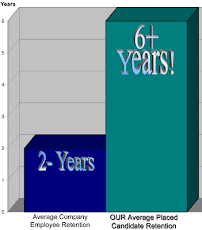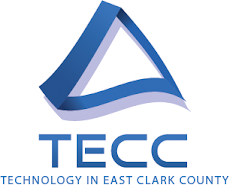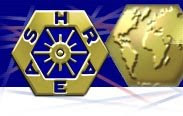Tuesday
3.5 Tips for Technology Pro’s Who HATE Social Events
3.5 Tips for Technology Pro’s
Who HATE Social Events
by Gary Perman
"Hello, I'm Gary Perman. I'm a headhunter;
an industry insider in the field of Technology. Transportation and Electronic
related companies hire me to find their next executive, manager, salesman or
engineer."
November
and December are times filled with holiday joys, magic, gift giving, family,
counting our blessings, good times…..AND
STRESS. We are expected
to attend holiday “functions” such as
company parties, trade association dinners, or worse—our spouses events where
we know absolutely NO ONE. For those of us who are not Type A personalities,
this time of year can be grueling – the social pressures to interact with
people when we’d rather be innovating, tinkering in our basements or getting
“away” from work for a little R&R.
Personally I am much more comfortable behind a
phone and a computer than meeting new people face-to-face. Perhaps you are more
comfortable innovating new products and solving problems? Yet face-to-face interaction
is essential today and the holiday time provides a great opportunity to do this
plus save your relationship with your significant other.
Most engineering types I know share a common
dislike for social interaction. Really though, it is not so much
"dislike" as it is fear. Remember high school? Getting up the
nerve to ask someone to a dance? Or standing in line during P.E. waiting to see
who picks you for their team? That is the same kind of fear that many of us
carry with us as we approach a social event. Well this isn't high school; it is
real life and your career (not to mention your relationship with a significant
other) depends on social interaction.
I've
read the networking books, attended workshops, and asked a lot of people who
are good at social interaction to share their secrets. I have collected traits
and practices that have made me better at social interaction. I still face
those initial jitters during the first moments at the registration table, but
now they dissipate with the first handshake. Not all the way, but dissipate a
great deal. I am here to tell you that
you don't have to be a master at social situations or have a "Type A"
personality to succeed. All it takes is a little planning and some strategy,
and after all, isn't that what engineering types do best anyway?
Tip #1
Have A Plan
When
I attend an event, I typically plan to meet one to three people whom I have
picked out in advance. If they are not there or not available, I have a backup
plan. I pick a number of new people I want to meet, usually five to ten. My
goal is to ask them two questions, and swap cards with them. Once I have
reached my goal, I am off the hook. I can go home, see a movie, or catch the
end of the game at the bar. I have set a goal and reached it. Social
interaction events are not a prison sentence if you don't make them one.
Kathy
Condon, author of, "It Doesn't Hurt to Ask," has some great social
interaction and advice on the subject. She is a consummate networker and lives
by what she teaches. One of the best tips I ever learned was from her many
years ago: When you first enter a room, step to the side and assess the room
and the people in it. Look for the person who is standing alone. That is target
number one. Most likely, that person would love to talk with someone.
Personally I have met some of my best contacts that way; people who have turned
out to be executives and engineering leaders.
Some of them are just not very good at schmoozing, but get them
one-on-one and they will talk your ears off!
Tip
#2 It’s Not All About You
Keith
Ferrazzi made this important point in his book, "Never Eat Alone."
When it comes to social interaction, it's not about you. When you spend
time meeting people, try and see if there is a way that you can be of help to
them. Putting this priority first in your mind makes social interaction easier.
Why? You might not be a great networker, but you are a great problem solver. If
you can help someone else with an issue, solve a problem, generate an idea, or
make a contact, you are working in the sweet spot of your skill set. Not only
will you help someone else, but along the way good things will happen to you,
too.
Tip #
3 Ask Good Questions
Get
to know people by asking good questions. Boring questions get boring answers.
"What do you do?," "Tell me about your company," and
"How long have you been with ... ?" are all examples of typical
openers that get typical results. They are boring and the answer usually
involves the other person looking over your shoulder in hopes of finding a more
interesting person to talk to. Instead, try these questions (it is okay to
write them down and carry them in your pocket):
[ ] "What business problem does your
company solve?" Follow up with, "How are you doing that?"
[ ] "What has been the biggest win for you
(or your company) in the last six months?" Follow up with, "What do
you think it will be in the next six months?"
[ ] "What is the most interesting
initiative you have planned at your company this year?" Follow up with,
"How will that change your company?"
[ ]
"Do you know anyone who might be able to help me…?" Ask for names of people who might be able to
help you find the person you are looking for, or solve a problem you are
dealing with.
"My
favorite approach," says Kathy Condon, is to, "walk up to someone
with your hand extended and smile and say, 'So tell me what great thing
happened to you recently?' The key here is to really listen to the answer - then you'll be given the information
you can use to ask the next question. People love to talk about themselves --
get to know the person standing before you on a personal level. Then set up a
coffee date and you can talk about your work at that meeting. People hire
people, collaborate with people, refer people that they know and like."
You want to ask questions that initiate a conversation out of the norm, and
these questions will do that. Once they have answered your questions, there is
just one more to ask; "Is there some way I can help you?"
I
have a good friend who always ends every conversation with, "What can I do
for you?" He is seriously asking if I might need a referral, a new contact,
or a solution to a new problem. At first my response was, "Oh nothing. I'm
fine," until I wised up. Since his business takes him into contact with
many companies, I started asking questions like, "Well, yes. Do you know
anyone who works at XYZ company?" When I ask, I often receive a positive
reply, something I appreciate and remember him for.
Tip #
.5 It's The Little Things
It
is so true in social interaction, business, and in life: it is the little
things that people remember. After I network with someone I jot down a note on
the back of their contact card. It might be something special about them, how I
might help them, or what I thought of them. I use that information when I write
them a follow-up email the next day. Want to make an even bigger, more positive
impression? Send them a handwritten note the next day. It's the little things
that make a great impression.
Maybe
they gave you a great idea or helped solve an engineering problem you were
stuck on. Perhaps they provided a referral to a potential client. Thanking them
goes a long way towards creating a long lasting relationship. I often meet
people at social interaction events who are unemployed. If I can't help them
professionally, I can offer to send them a copy of, "Doug's List," an
extensive list of social interaction events, groups, and job boards in the
metro area. Though it costs me only a few seconds of my time, it might mean a
lot to them. Those are the kind of "little things" that people will
remember about you.
Extra
Holiday Bonus Tip
Be mindful of the amount of alcohol you
consume. Many careers have been damaged or even destroyed because a person
drank too much and became obnoxious, flirtatious or downright obscene. Holiday
Social events are NOT the place to “let down your hair” and bash the boss,
demonstrate a new dance pole technique or imitate a drunken sailor. Have a good
time, have fun, just not too much fun.
A
Final Thought; Kathy Condon says, "Social media networking (Facebook,
Linked-In) has to be a part of your personal and professional marketing wheel,
but face-to-face social interaction will never be replaced.”
For
some people social interaction comes naturally, and I envy them. For others
like me, we have to work at it. Following the plan outlined above takes almost
all of the stress out of social interaction, and I've even learned to enjoy it!
I hope to see you at a social interaction event soon.
Gary Perman is a certified recruiting
professional and owns PermanTech, a national search firm which specializes in
recruiting technology executives, managers salespeople and engineers. He is
also the former Chair for the IEEE Oregon Technology Management Community and the IEEE
Oregon Section. He can be reached at gary@permantech.com www.permantech.com
Subscribe to:
Post Comments (Atom)














No comments:
Post a Comment